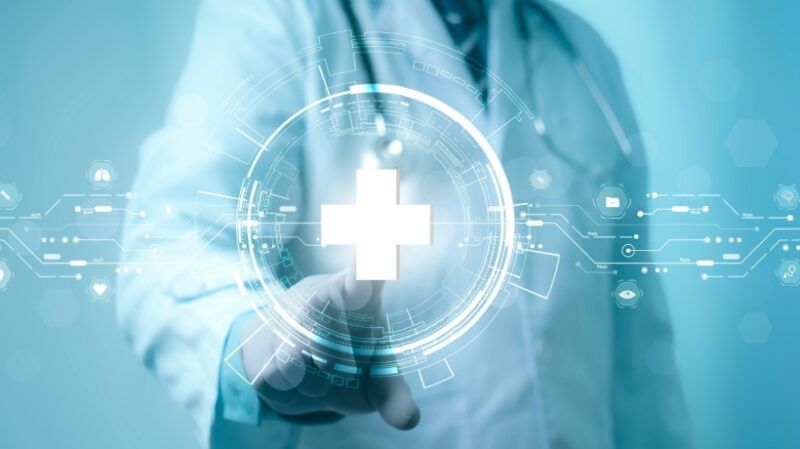
Transforming Healthcare Training with eLearning Solutions
In the ever-changing landscape of healthcare, continuous learning is key to keeping up with advancements in medicine, technology, and patient care. Traditional training methods struggle to meet the demands of this dynamic industry, but eLearning solutions offer a cutting-edge approach. A robust Learning Management System (LMS) can equip healthcare professionals with the necessary training on HIPAA, patient care, and emerging technologies, preparing them for the challenges of the future.
Addressing Challenges in Healthcare Training
Healthcare organizations encounter numerous obstacles in closing skills gaps due to evolving patient needs, technological progress, and regulatory updates:
- Complex Patient Needs: With patient conditions becoming more intricate, healthcare professionals must continuously expand their knowledge and skills.
- Technological Advancements: The emergence of Artificial Intelligence (AI), robotics, and other technologies necessitates ongoing upskilling.
- Regulatory Updates: Frequent changes to healthcare regulations require consistent education to ensure compliance.
An effective LMS serves as a bridge to overcome these challenges, providing healthcare professionals with the tools they need to stay current, adapt swiftly, and deliver exceptional patient care.
The Advantages of eLearning in Healthcare
eLearning offers a multitude of benefits for both healthcare professionals and their organizations:
For Healthcare Professionals
- Enhanced Knowledge Retention: Interactive modules, simulations, and multimedia elements enhance engagement and understanding.
- Flexibility: Professionals can access training at their convenience, balancing learning with their schedules.
- Self-Paced Learning: Learners can progress at their own speed, revisiting complex concepts as needed.
- Personalized Learning: Tailored courses ensure targeted training that meets individual needs.
For Healthcare Organizations
- Cost Efficiency: eLearning reduces expenses associated with traditional training methods.
- Risk Reduction: Consistent delivery of compliance training mitigates risks and ensures adherence to regulations.
- Scalability: eLearning easily scales to accommodate large, geographically dispersed teams.
- Data-Driven Insights: Advanced LMS platforms provide analytics on learner progress, aiding in refining training programs.
Key Training Topics for Building a Future-Ready Workforce
Healthcare organizations can greatly benefit from converting key training programs into eLearning modules, focusing on:
- Compliance Training: Covering HIPAA, patient privacy, infection control, and workplace safety.
- Onboarding: Introduction to organizational policies and procedures for new hires.
- Soft Skills Development: Improving communication, empathy, conflict resolution, and teamwork.
- Clinical Skills Training: Enhancing competencies in medical procedures, terminology, and specialized equipment.
- Product Training: Keeping professionals informed about new medical devices and health information technology.
- Diversity, Equity, and Inclusion (DEI): Promoting inclusivity and understanding of diverse patient populations.
Strategies for Effective eLearning Implementation
To maximize the impact of eLearning in healthcare, consider employing the following strategies:
- Video-Based Learning: Utilize video demonstrations and patient scenarios for engaging experiences.
- Scenario-Based Learning: Interactive simulations that foster critical thinking and decision-making skills.
- Microlearning: Short, focused modules that enhance retention and fit into busy schedules.
- Blended Learning: Combine eLearning with traditional methods to cater to diverse learning preferences.
- Virtual Reality (VR): Offer hands-on training in a safe environment, refining skills without risk.
Sustaining Ongoing Learning
eLearning is a long-term investment in skill development. To maintain progress:
- Regular Updates: Continuously review and update content to reflect the latest practices.
- Collect and analyze learner feedback to refine training programs.
- Reward professionals who actively participate in eLearning, fostering a culture of lifelong learning.
Conclusion
eLearning serves as a critical tool for cultivating a future-ready healthcare workforce. By investing in a comprehensive LMS, healthcare organizations can provide impactful, cost-effective training that empowers professionals to stay current, adaptable, and skilled. From HIPAA compliance to clinical skills development, eLearning ensures that healthcare professionals are equipped to face the challenges of the modern era.
Editor’s Note: Explore our directory for the eLearning Industry’s Top LMS Software.
Originally published at www.maplelms.com.



